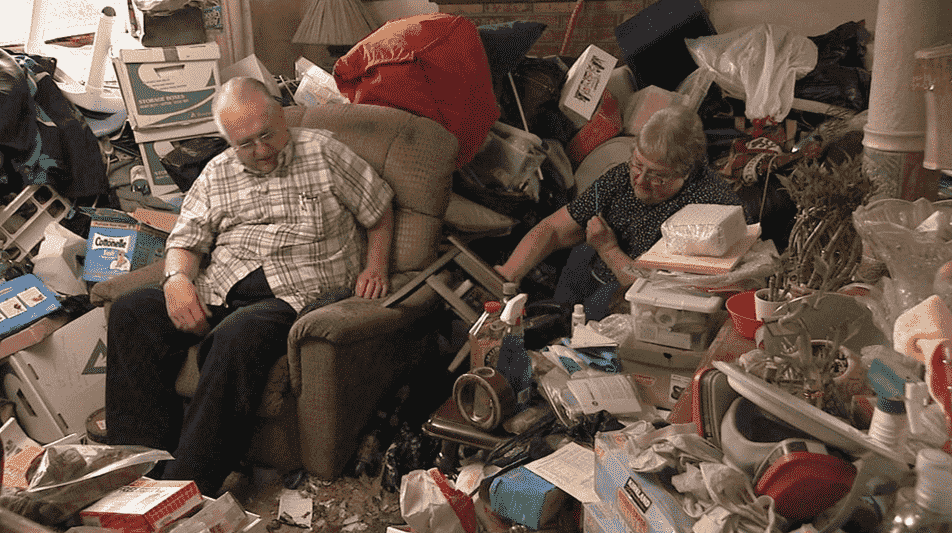Hoarder cleanup is a challenging and often emotionally charged task. Hoarders, individuals who compulsively accumulate and have difficulty discarding possessions, frequently exhibit emotional resistance to decluttering and cleanup efforts. These emotional barriers can range from fear and anxiety to deep attachments to belongings. Understanding and effectively addressing this emotional resistance is not only key to a successful cleanup but also a compassionate approach to helping individuals struggling with hoarding disorder. In this guide, we delve into the intricacies of “Addressing Emotional Resistance during Hoarder Cleanup,” offering insights into the psychology behind hoarding, empathetic strategies for communication, and the importance of post-cleanup support. This exploration serves as a testament to the significance of addressing emotions alongside clutter, ultimately contributing to the well-being and recovery of hoarders.
Unlocking the Heart: Strategies for Addressing Emotional Resistance during Hoarder Cleanup
Olimpia’s Biohazard & Restoration LLC has an advice for you before embarking on the path to a clutter-free life can be a journey fraught with emotional hurdles, especially for those battling hoarding disorder.


Understanding Emotional Resistance in Hoarder Cleanup
Emotional resistance is a common phenomenon in hoarder cleanup, primarily because hoarders often have deep emotional attachments to their possessions. They may experience fear, anxiety, guilt, or shame when faced with the prospect of decluttering and letting go of items. Understanding the emotional aspect is the first step for cleanup professionals. It involves recognizing that hoarding is not just about clutter but also a manifestation of complex emotional issues. By acknowledging these emotions and their underlying causes, cleanup teams can approach the task with empathy and develop strategies that are sensitive to the hoarder’s feelings. Animal hoarding cleanup, much like other forms of hoarding, involves addressing emotional resistance sensitively, recognizing the deep attachments individuals may have to their pets and possessions while prioritizing the welfare of both humans and animals in the process.
The Psychology Behind Hoarding and Emotional Barriers
Hoarding is a psychological disorder with deep-seated emotional roots. It’s essential for cleanup professionals to understand the psychology behind hoarding to effectively address emotional barriers. Hoarders may have experienced trauma, loss, or anxiety disorders, which contribute to their attachment to possessions. These emotions can create resistance to decluttering and cleaning up. By delving into the psychological aspects, cleanup teams can tailor their approach, recognizing that each hoarder’s emotional landscape is unique. This understanding allows for more compassionate and targeted interventions. The emotional toll of hoarding cleanup can be overwhelming, making it essential to address emotional resistance during the process to ensure a compassionate and successful outcome.
Empathy and Communication: Keys to Addressing Emotional Resistance
Empathy and open communication are the cornerstones of addressing emotional resistance during hoarder cleanup. Cleanup professionals must approach hoarders with genuine empathy, conveying that they understand the emotional turmoil the hoarder is experiencing. Effective communication involves active listening, validation of the hoarder’s feelings, and non-judgmental dialogue. By building trust through empathy and communication, cleanup teams can create an environment where hoarders feel heard and supported, which is crucial for breaking down emotional barriers.
Creating a Supportive and Non-Judgmental Environment
Hoarders often fear judgment and criticism, which can intensify their emotional resistance. Creating a supportive and non-judgmental environment is essential for addressing these fears. Cleanup professionals should emphasize their role as helpers and allies, reassuring hoarders that they are there to support and not to pass judgment. By fostering an atmosphere of trust and understanding, professionals can help hoarders feel more comfortable and less anxious about the cleanup process. While crime scene cleanup and hoarding cleanup in Portland may differ in their nature, addressing emotional resistance during hoarder cleanup, as discussed, is a common thread that underscores the importance of empathy and sensitivity in both challenging situations.
Professional Hoarder Cleanup Services: Bridging Emotional Gaps
Professional hoarder cleanup services play a pivotal role in bridging emotional gaps. Their training and experience equip them with the expertise needed to handle sensitive situations delicately. They follow industry best practices while customizing cleanup strategies to address the unique emotional needs of each hoarder. Engaging professionals can significantly reduce the emotional burden on the hoarder and their family, as they can rely on experts who understand the complexities of hoarding disorder and the emotions associated with it.
Overcoming Challenges: Strategies for Dealing with Emotional Resistance
Dealing with emotional resistance during hoarder cleanup requires a range of strategies. Gradual decluttering, setting achievable goals, and offering choices to the hoarder are effective techniques. Professionals can employ cognitive-behavioral techniques and motivational interviewing to help hoarders overcome emotional barriers. These strategies aim to empower hoarders, giving them a sense of control over the cleanup process and gradually reducing their emotional resistance.


Family Dynamics and Emotional Resistance in Hoarder Cleanup
Family dynamics often play a significant role in emotional resistance during hoarder cleanup. Cleanup professionals must understand these dynamics, including conflicts and emotions among family members. Engaging family members in a supportive way is crucial, as they can either exacerbate or alleviate the hoarder’s emotional resistance. By encouraging open communication and cooperation within the family, professionals can create an environment where everyone can work together to address emotional barriers effectively.
Case Studies: Successful Approaches to Addressing Emotional Resistance
Case studies provide valuable insights into successful approaches for addressing emotional resistance during hoarder cleanup. Real-life examples of cleanup projects can showcase specific strategies, challenges faced, and the outcomes achieved. These case studies serve as practical and educational tools for professionals, demonstrating how various techniques and approaches can be adapted to unique hoarding situations. By sharing these success stories, cleanup professionals can learn from each other and continually improve their ability to address emotional resistance.
Post-Cleanup Support: Helping Hoarders Maintain a Clutter-Free Environment
Emotional support doesn’t end with the completion of the cleanup. Hoarders may experience anxiety or relapses after the clutter is removed. Providing post-cleanup support is vital to help hoarders maintain a clutter-free environment. This support may include access to therapy, support groups, or regular check-ins to ensure that emotional challenges are addressed and that the hoarder can maintain their progress toward a clutter-free life.
Training and Education: Building Expertise in Emotional Resilience during Hoarder Cleanup
Proper training and education are essential for professionals involved in hoarder cleanup.
Specialized training programs can equip them with the knowledge and skills needed to navigate emotional resistance effectively. Building expertise in emotional resilience empowers cleanup professionals to approach hoarder cleanup with sensitivity, empathy, and professionalism. By continually educating themselves on the emotional aspects of hoarding disorder, professionals can facilitate successful outcomes and better mental health for hoarders, ultimately contributing to their long-term well-being.
FAQs:
FAQ 1: Why do hoarders often resist decluttering and cleanup?
Hoarders resist cleanup due to deep emotional attachments to possessions, fear of loss, and anxiety. These emotions can make them reluctant to part with items they believe provide comfort and security.
FAQ 2: How can cleanup professionals address hoarders’ emotional resistance effectively?
Professionals should approach hoarders with empathy, engage in open and non-judgmental communication, and employ gradual decluttering strategies. These techniques build trust and help hoarders feel heard and supported.
FAQ 3: Is post-cleanup emotional support essential for hoarders?
Yes, post-cleanup support is crucial to help hoarders maintain a clutter-free environment. It may involve therapy, support groups, and regular check-ins to address emotional challenges and sustain progress.
Conclusion:
In conclusion, addressing emotional resistance during hoarder cleanup is a sensitive and intricate process that requires understanding, empathy, and a tailored approach. Hoarders’ resistance stems from deep emotional attachments, fear, and anxiety, making it essential for cleanup professionals to approach the task with compassion. Effective communication and gradual decluttering strategies build trust and alleviate hoarders’ anxieties, allowing them to gradually overcome their emotional barriers. Post-cleanup support is equally vital, as it helps hoarders maintain a clutter-free environment and navigate any emotional challenges that may arise. By recognizing the complex emotional landscape of hoarding disorder and employing empathetic strategies, professionals can assist hoarders in reclaiming their spaces and improving their overall well-being.
